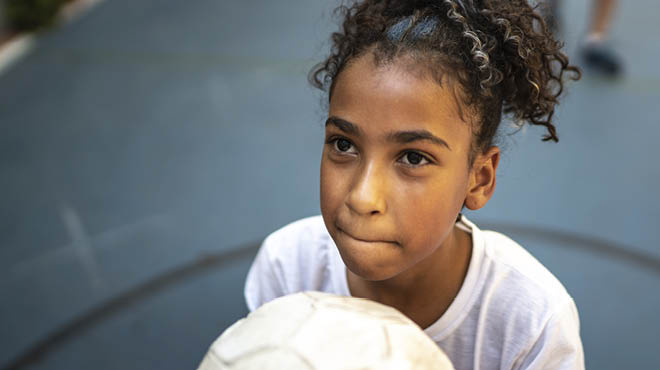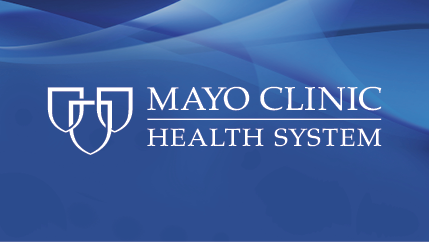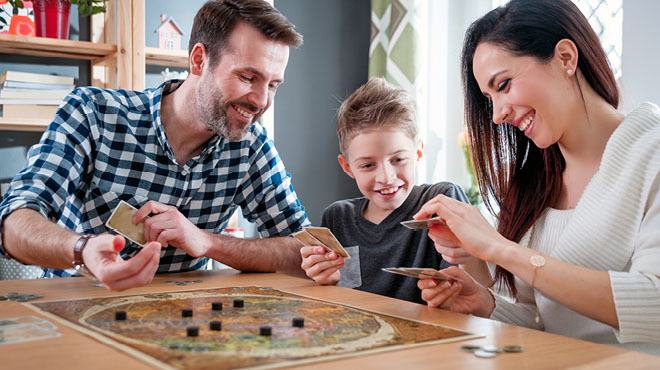Recent Posts
Physical therapy benefits children with bowel, bladder issues

Most children learn to use the bathroom during the toddler years. Toilet training typically happens when children can tell you their diaper is wet, show interest in using the bathroom or have a dry diaper for longer periods of time. For most children, this happens around ages 3 or 4.
As children grow, it's common to have occasional day or nighttime leaks, or constipation. But for some children, leaking from the bowel or bladder, or persistent constipation, can negatively affect daily activities and mental health.
When children reach school age, having control of bowel and bladder function is an important part of social interactions. Teenagers experiencing nighttime accidents may avoid sleepovers or overnight activities away from home due to concern of having an accident while sleeping. Younger children may fear using the bathroom during school, which increases the likelihood of accidents. Some children withhold urine or stool, which can lead to serious medical concerns.
How does constipation affect children?
Children have a smaller abdomen and pelvis area than adults. As the rectum and colon fill with stool, it can press on or block the bladder from emptying completely during urination. It also can limit the amount of urine the bladder can hold. The stool may push on the bladder, causing it to squeeze and leak, which children will not be able to control or stop.
Constipation often is multifactorial, and can be difficult for parents and caregivers to identify.
Children may be constipated, even if they have regular bowel movements, if any of these are true:
- Stool stains or streaking are seen in the child's underwear when doing laundry.
- Child's abdomen appears distended.
- Child must strain to have a bowel movement.
- Child has frequent urination or feels unable to empty the bladder.
- Child has regular abdominal pain that is relieved with a bowel movement.
- Resolving constipation may reduce or eliminate nighttime bladder leaking.
What treatment options are available for bowel and bladder issues in children?
Talk with your children's health care team if you have concerns about bowel and bladder function. A referral to physical therapy is a resource available to help with bowel and bladder issues in children.
Physical therapy may help your children with these issues:
- Day and nighttime leaks from the bowel or bladder
- The need to frequently pass urine
- The sudden, unexpected need to have a bowel movement or pass urine
- Stress incontinence, and leaking urine when sneezing, coughing, laughing or playing
- A bowel that does not empty all the way
- Holding urine or stool and delaying using the bathroom
- Constipation
- Frequent urinary tract infections
- Urinary reflux
A physical therapist can evaluate your child's breathing to ensure your child is using abdominal breathing rather than chest breathing. Using abdominal breathing allows the diaphragm to extend below the ribs causing the pelvic floor to descend. When the diaphragm raises, the pelvic floor is activated to go up and create pelvic contractions.
Pelvic floor therapy includes Kegel exercises to create awareness for contracting and releasing the pelvic floor to enable the bladder to empty fully. Children who do not relax the pelvic floor can't empty the bladder when going to the bathroom. This leads to feeling the need to urinate frequently or causing an accident. Pediatric pelvic floor therapists are specifically trained to help teach children how to coordinate and strengthen these muscles.
Other techniques include a special abdominal massage for children with constipation to increase stool motility, core strengthening exercises and biofeedback to help children coordinate contraction and relaxation of the pelvic floor.
Throughout your child's care, you can expect a comprehensive team approach, including caregivers, the child, their primary care provider, physical therapist, and other specialists in urology and gastroenterology. Success in treatment requires a collaborative approach and is only as successful as the support and effort of the whole team.
What can I do if my child is embarrassed and does not want to talk about the issues?
Bowel and bladder issues in children are more common than people may realize. There is a hesitancy to discuss these issues with family and friends, particularly as children get older.
Reassure your children they are experiencing a medical condition and help is available for bowel or bladder issues that affect daily activities or cause feelings of embarrassment in social situations. Your children's health care team can provide education and referral to physical therapy.
Bladder and bowel physical therapy can help your child learn about these things:
- How the bowel and bladder work
- Healthy bathroom habits and toilet use
- Healthy eating and drinking habits. Milk, chocolate, citrus, spicy foods and certain artificial flavoring can irritate the bladder
- How to manage constipation
- A personal exercise program
- Sensory training
- School and social considerations, such as taking a change of clothes to school
How can I help my children prepare for bowel and bladder therapy?
First, if your children are motivated to have the leaks stop, it may improve the results of the therapy. Support from parents at therapy sessions and at home is important to reinforce education and skills learned in therapy. Encourage your children to ask questions and become educated about the medical condition.
Remind your children that the therapy care plan is individualized for their specific needs. Just like homework from school, practice the new skills or healthy bowel and bladder habits introduced during therapy at home.
When can I expect my children to stop having bowel or bladder leaks?
Every child is different. Depending on the bowel or bladder issue affecting your children and the length of time your children have had leaks, it may take several weeks to months to see improvements. Most children complete the program in six to eight months.
Working on the physical therapy techniques at home, as well as at physical therapy sessions, can improve results. Discuss bathroom habits and tips with teachers and day care providers to reinforce proper use during time away from home.
Don't wait until your child "grows out of it" to address bowel and bladder issues. Education, lifestyle and diet modification, and proven treatment techniques can resolve, or significantly decrease, occurrence of bowel and bladder issues affecting children.
By Mayo Clinic Health System staff





